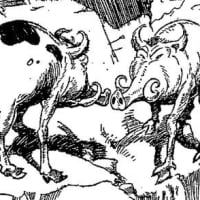Welcome to the Hardcore Husky Forums. Folks who are well-known in Cyberland and not that dumb.
Best Rock Album - 1979?
Comments
-
London Calling - The Clash
Maybe that’s why it’s my favorite record of theirs.RaceBannon said:Its Don Henley's birthday and The Long Run is a piece of garbage that even the Eagles hated.
-
Highway To Hell - AC/DC
As long as it's shallow.YellowSnow said:
You wanna wrassle in the middle of a strong current and see who wins?dflea said:London Calling can't hold Highway to Hell's jock strap.
Highway to Hell is Stan Emptermann and London Calling is the Michigan o-line.
lol -
Damn The Torpedos - Tom Petty & The Heartbreakers

Recorded in 1978 and early 79, released I'm May 1979. I feel better now. -
Rust Never Sleeps - Neil Young
Not rock....theknowledge said:
Recorded in 1978 and early 79, released I'm May 1979. I feel better now. -
London Calling - The Clash
You’d take me in a shallow little riffle @dflea but I’ll drown you in a deep hole. They won’t find you for years.dflea said:
As long as it's shallow.YellowSnow said:
You wanna wrassle in the middle of a strong current and see who wins?dflea said:London Calling can't hold Highway to Hell's jock strap.
Highway to Hell is Stan Emptermann and London Calling is the Michigan o-line.
lol -
Damn The Torpedos - Tom Petty & The Heartbreakers
...aaaand I'm retarded and voted for the wrong Tom Petty.theknowledge said:I chose Damn The Torpedos. Wish I had picked Tom Petty. Abundance.
I'llJustGoFuckMyself.gif
-
London Calling - The ClashTorpedos and Highway get strong consideration, but for me, Guns of Brixton for the win...
-
London Calling - The ClashI wanted to give @PurpleBaze some free pub in this pole given 79 is the year all the camel pullers started getting to be a pain in the anoose
-
Rust Never Sleeps - Neil YoungNeil looking to get fucked in this bracket. Race get your vote in!
-
London Calling - The Clash
I will use math skillz to add up Tom Petty abundance. Fret not.NoWarningJustDawg said:
...aaaand I'm retarded and voted for the wrong Tom Petty.theknowledge said:I chose Damn The Torpedos. Wish I had picked Tom Petty. Abundance.
I'llJustGoFuckMyself.gif






